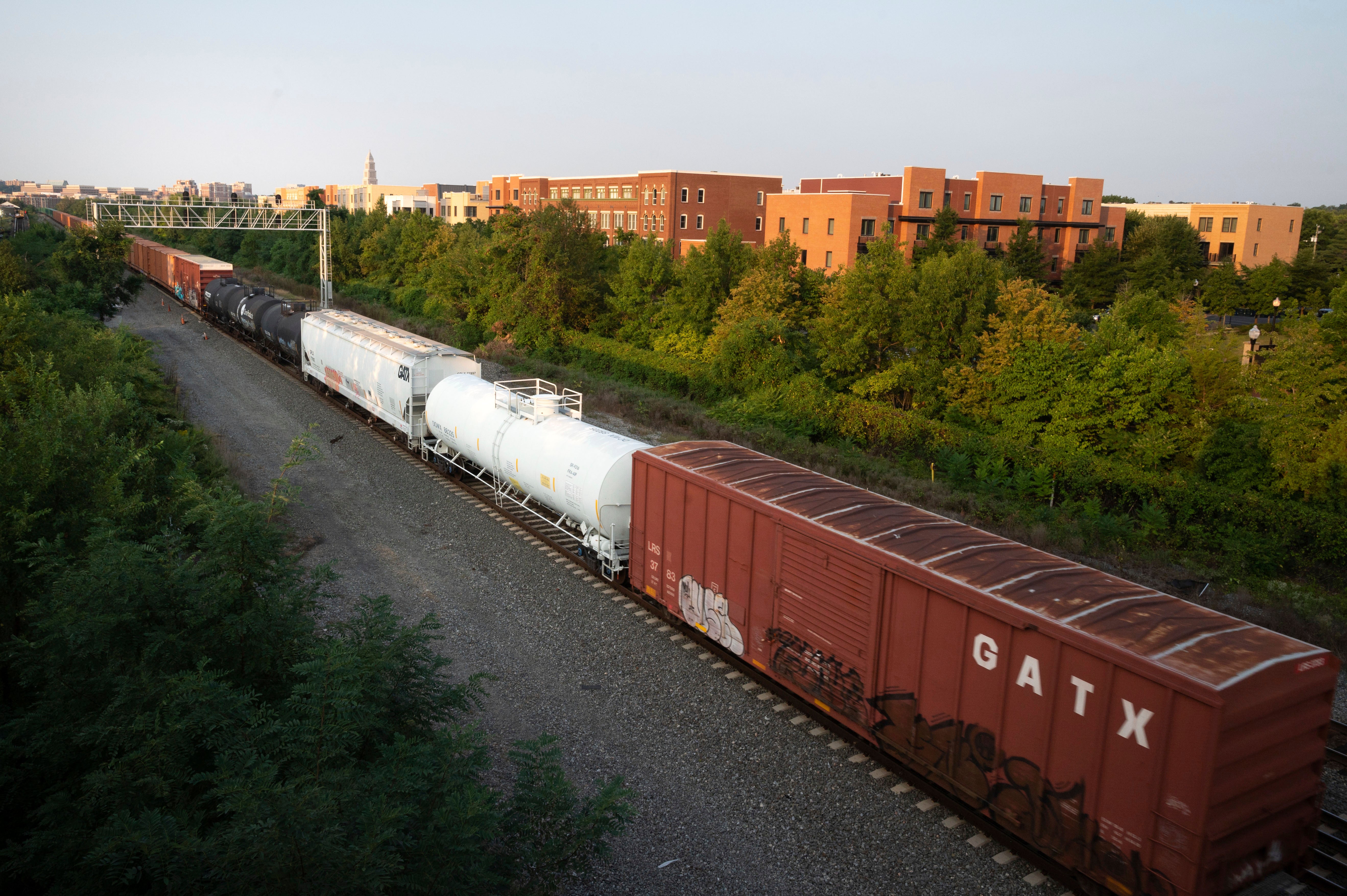Railroads reject sick time demands, raising chance of strike
The major freight railroads appear unwilling to give track maintenance workers much more than they received in the initial contract they rejected last week, increasing the chances of a strike

Your support helps us to tell the story
From reproductive rights to climate change to Big Tech, The Independent is on the ground when the story is developing. Whether it's investigating the financials of Elon Musk's pro-Trump PAC or producing our latest documentary, 'The A Word', which shines a light on the American women fighting for reproductive rights, we know how important it is to parse out the facts from the messaging.
At such a critical moment in US history, we need reporters on the ground. Your donation allows us to keep sending journalists to speak to both sides of the story.
The Independent is trusted by Americans across the entire political spectrum. And unlike many other quality news outlets, we choose not to lock Americans out of our reporting and analysis with paywalls. We believe quality journalism should be available to everyone, paid for by those who can afford it.
Your support makes all the difference.The major freight railroads appear unwilling to give track maintenance workers much more than they received in the initial contract they rejected last week, increasing the chances of a strike.
The railroads took the unusual step of issuing a statement late Wednesday rejecting the Brotherhood of Maintenance of Way Employes Division union’s latest request to add paid sick time on top of the 24% raises and $5,000 in bonuses they received in the first five-year deal.
Union Pacific CEO Lance Fritz said Thursday that he thinks the main reason the BMWED rejected its initial contract last week was that the details of improved expense reimbursement in the deal were still being negotiated at UP while workers were voting. So it wasn't clear exactly what those workers would receive for their travel expenses when they go on the road to repair tracks.
Six of the 12 railroad unions that represent 115,000 workers nationwide have approved their tentative agreements with the railroads so far, but all of them have to ratify their contracts to avoid a strike. The unions have agreed to put any strike on hold until at least mid-November while the BMWED negotiates a new deal and the other unions vote on their proposed contracts, so there's no immediate threat the the trains most businesses rely on to deliver their raw materials and finished products will stop moving. A railroad strike could devastate the economy.
“Ultimately, I remain confident that we’re going to get our temporary agreements ratified and be able to avoid a strike. That’s still a possibility but I don’t think it’s a probability,” Fritz told investors after his railroad released its earnings report.
The group that negotiations on behalf of the major railroads, including UP, BNSF, Norfolk Southern, CSX and Kansas City Southern, said the new contracts should closely follow the recommendations of the special board of arbitrators that President Joe Biden appointed this summer. The railroads said that board rejected union demands for paid sick time.
“Now is not the time to introduce new demands that rekindle the prospect of a railroad strike,” the railroads said.
Officials at the BMWED union didn't immediately respond to the railroads Thursday. Concerns about quality of life and the ability for workers — particularly the engineers and conductors who drive the trains — to take time off without being penalized have weighed heavily on the negotiations.
But the railroads say workers do have significant short-term disability benefits that kick in after four or seven days and last up to 52 weeks that the unions have negotiated for over the years. The railroads said the unions have repeatedly agreed that short-term absences would be unpaid in favor of higher wages and more generous benefits for long-term illnesses.
If both sides can't agree on contracts, Congress could step in to block a strike and impose terms on the workers.